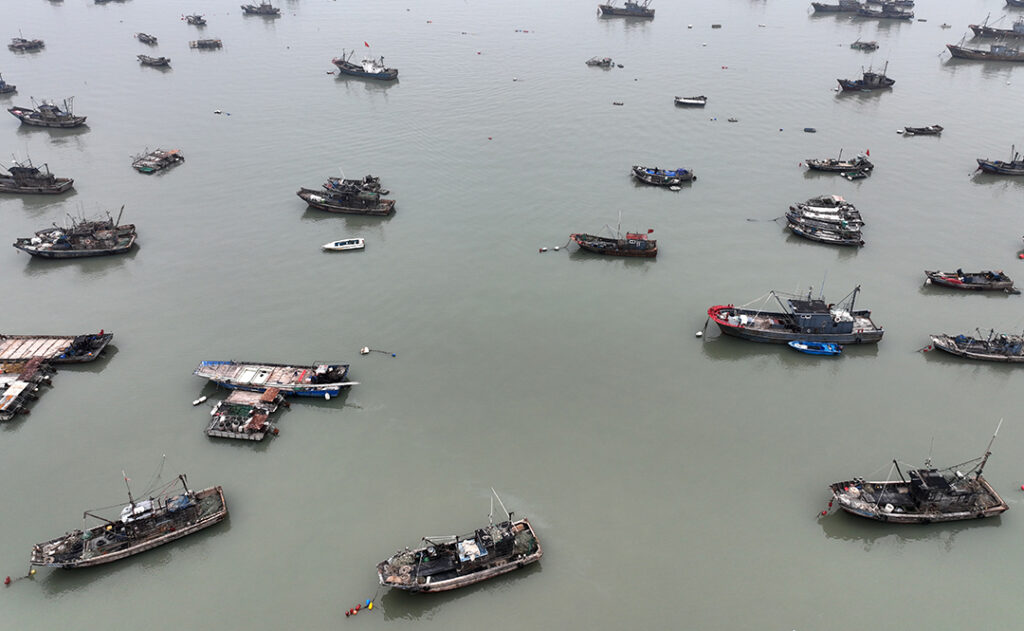ADF STAFF
One-third of vessels engaged in illegal, unreported and unregulated (IUU) fishing in Africa are Chinese-owned, according to a study by the Financial Transparency Coalition (FTC).
According to the FTC, eight of the world’s top 10 companies involved in IUU fishing are from China, with Pingtan Marine Enterprise and China National Overseas Fisheries Corp. leading the pack. The others are from Colombia and Spain.
Almost half of the world’s IUU vessels operate in Africa, which costs the continent up to $11.5 billion a year. The most affected sub-region is West Africa, which loses up to $9.4 billion annually to illegal fishing, and where 40% of global IUU fishing occurs, according to the study.
“It’s [China’s] strategy of establishing themselves as a big fishing power,” Matti Kohonen, executive director of the FTC, told the news channel Al Arabiya News. “Then they end up breaking a lot of fishing laws by doing that. To be a responsible power you need to crack this problem down.”
Illegal fishing thrives amid insufficient monitoring, control and surveillance. The practice has sent fish stocks plummeting off the coast of West Africa and threatened the livelihoods of fisheries workers.
Foreign fishing boats are notorious for abusing local rules to flag a foreign-owned and operated fishing vessel into an African registry and fish in local waters. It helps a vessel’s owners dodge financial charges and other regulations.
There is little oversight of the online open registries. This means that a fishing company in China can register to fish in Ghana and pay the registration fee electronically.
IUU fishing operators also commonly use shell companies and joint venture agreements that make it difficult to investigate and prosecute ships accused of IUU fishing.
Shell companies are created to hold funds and manage another company’s or individual’s financial transactions. They look like a real company but exist only on paper. A joint venture agreement is an arrangement between two or more companies to start a new company for their mutual benefit.
For China, it’s about “access to fishing waters, supplying fish for a growing market of consumers who increasingly eat both meat and fish,” Kohonen told Al Arabiya News. “They break some of the fishing laws because the controls are not there. They don’t have enough Coast Guard capabilities in West Africa, so it’s quite easy.”
Ghanaian Authorities Have Had Enough
An investigation by the Environmental Justice Foundation (EJF) found that 90% of industrial fishing vessels operating in Ghana are owned by Chinese companies, often through disguised front companies. Ghana loses $50 million a year through opaque arrangements with foreign companies, the foundation found.
The results of overfishing in Ghana have been catastrophic.
More than 100,000 fishermen and 11,000 canoes operate in the country, but average annual income has dropped by as much as 40% per artisanal canoe in the past 15 years, according to the foundation.
Ghana’s small pelagic fish populations, such as sardinella, have dropped 80% in the past two decades. One species, sardinella aurita, is fully collapsed, the foundation reported.
Mavis Hawa Koomson, Ghana’s minister of fisheries and aquaculture development, has made it a priority to stiffen punishments for those found violating the country’s fishing laws including those who fish illegally during the closed season.
“Currently, when they are arrested and taken to court, they will only be fined and released,” Koomson said during an August ceremony to deliver supplies to fish processors. “We are going to have a discussion and make sure it is also going to be part of our laws that when you are arrested, you have to be in prison at least for three months or six months maximum and this may serve as a deterrent.”
Others have called on artisanal fishermen and merchants to report illegal activity if they observe it.
“Stop buying from those who use illegal and unregulated means to fish. Those fishes are not good,” Joojo Solomon, acting president of the National Canoe Council said during the same event in August. “And please report these people when you see them. If you see something, say something.”

